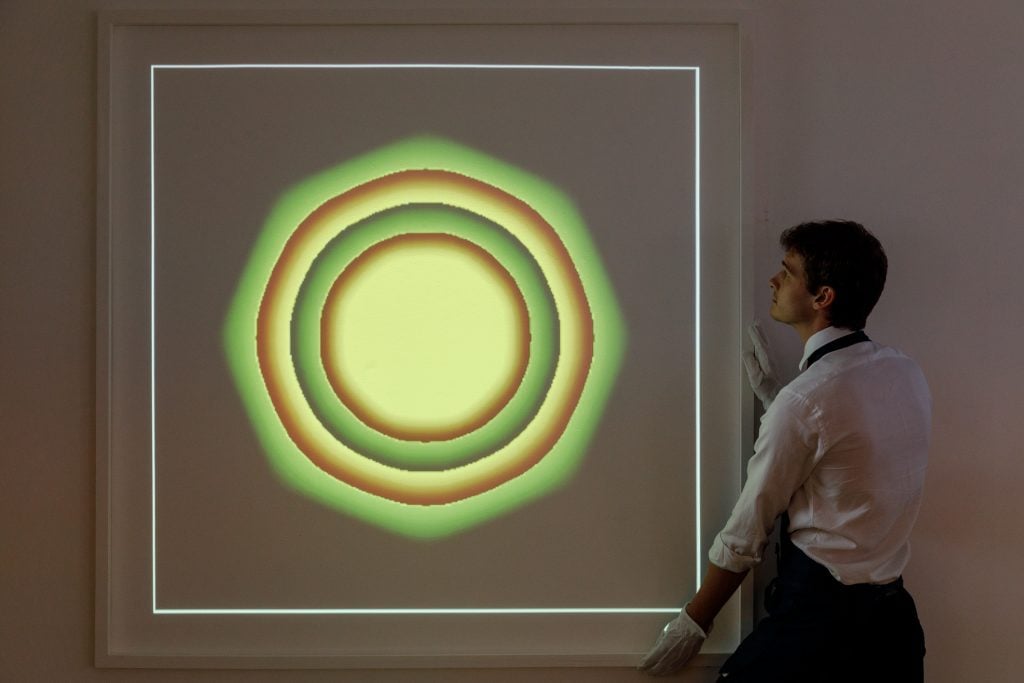Kevin McCoy, the artist widely credited with creating the first NFT, and auction house Sotheby’s have won a court victory in a lawsuit challenging the terms and propriety of a 2021 sale over which the token sold for $1.47 million.
U.S. Magistrate Judge James L. Cott dismissed a lawsuit, in a detailed 43-page ruling issued March 17 that marks one of the first major tests regarding NFT’s ownership and is likely to set a precedent for the coming.
The plaintiff in the case, filed in the United States District Court, Southern District of New York, was anonymous and sued through Free Holdings, a Canadian holding company. The claims centered on the fact that McCoy, in 2014, had created Quantum, his first NFT, using a blockchain known as Namecoin. McCoy then opted to keep his original metadata by using a token on a different, more modern blockchain, Ethereum. McCoy’s sale of Quantum at Sotheby’s in 2021 included the Ethereum token.
“About a month before the sale, Free Holdings created a new NFT on the Namecoin blockchain, using the same namespace McCoy had used seven years earlier and duplicating McCoy’s original metadata. Free Holdings then alleged that it was in fact the owner of the “first-ever NFT,” according to a statement shared with Artnet News by McCoy’s attorneys at Pryor Cashman.
“The court rejected this position and granted judgment to McCoy and co-defendant Sotheby’s,” the statement continued.
Asked for comment, a Sotheby’s representative said via email: “The complete dismissal of this case is a complete vindication of Sotheby’s position. We are delighted with this victory and its significant impact for digital artists and marketplaces. »

by Kevin McCoy Quantum (2014) at Sotheby’s. Photo: Tristan Fewings/Getty Images for Sotheby’s.
“We are disappointed with the court’s decision. We are evaluating all of our options, including appeal,” Free Holdings attorney Moish E. Peltz said in an email to Artnet News.
Although it got into very detailed and technical territory when it comes to NFTs and blockchain, the decision was relatively straightforward in deciding the issues and strongly favored both the fact of McCoy’s creation of the NFT and how it was marketed and sold through Sotheby’s innovative system. “Natively Digital” sale held in June 2021.
Justice Cott cited several key grounds proposed by McCoy and Sotheby’s as rational for granting the dismissal, such as “failure to state a claim upon which relief may be awarded”, as well as the fact that the court had not competence in the matter on complaints.
He went on to write: “Free Holdings has demonstrated nothing more than an attempt to exploit open questions of ownership in the still-developing field of NFT to claim the benefits of a legitimate artist and creator. She does not claim to have participated in the creation of Quantum or the blockchains used to record it. Free Holdings has therefore not plausibly alleged that unjust enrichment has occurred in these circumstances.
The Pryor Cashman team was led by litigation partner William Charron, who co-chairs Pryor Cashman’s art law practice, with support from partners Robert deBrauwere and Megan Noh (who co-chairs the art law practice). art with a focus on NFT issues), and litigation associates Nicholas Saady and Maya Katalan. Sotheby’s was represented by Arnold & Porter.
Follow Artnet News on Facebook:
Want to stay one step ahead of the art world? Subscribe to our newsletter to receive breaking news, revealing interviews and incisive reviews that move the conversation forward.
